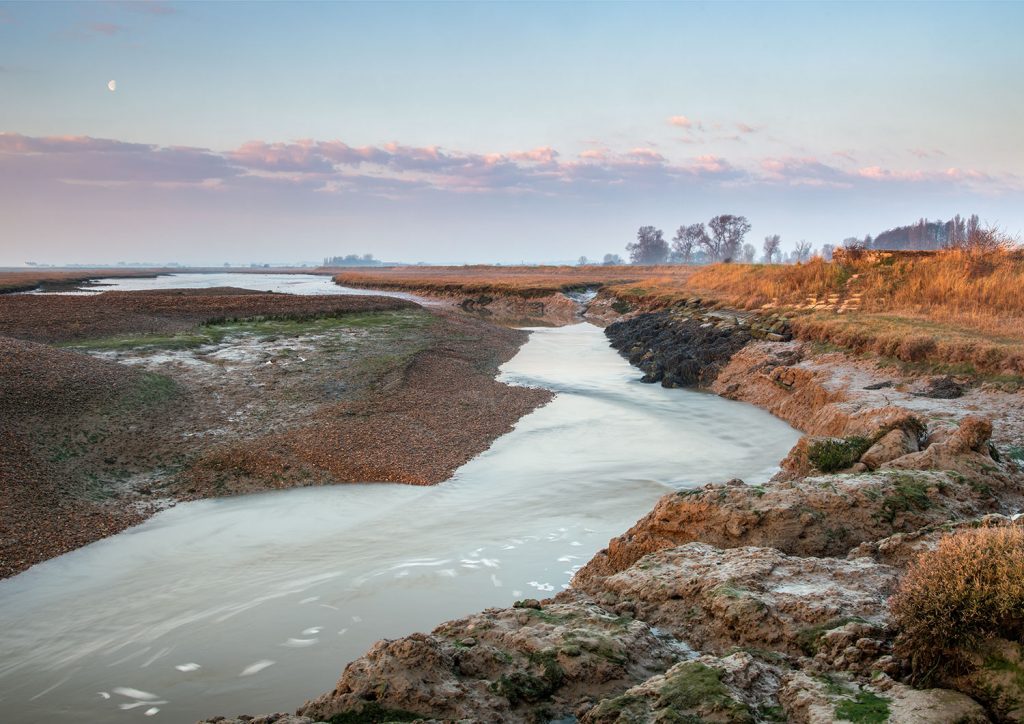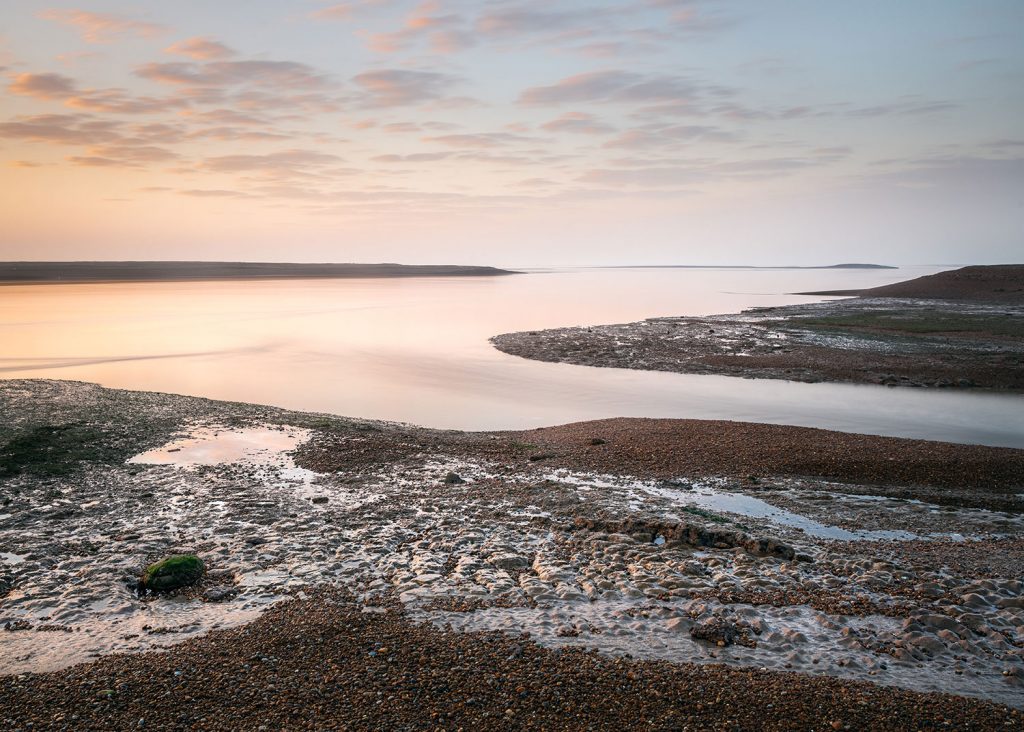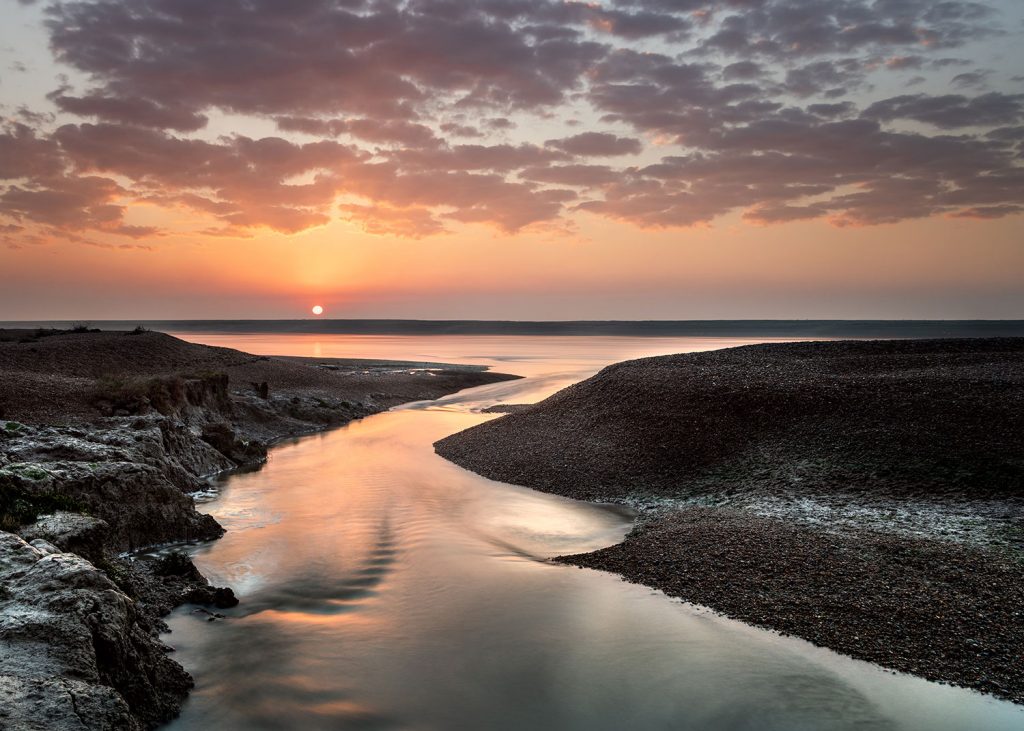My Wild Place By Gill Moon
On a corner of the sea wall between the marsh and the river lies an old world war two pill box. Half buried in the sea wall the abandoned monolithic structure has been embraced by the natural world, lichens cover its roof, a dog rose has taken root in the open doorway and cow parsley encircles the base softening the concrete harshness of the exterior.
The pill box guards the mouth of Bathorpes Creek, an artery through the flatlands wending its way over viscous mud strewn with cushiony mounds of foliage. The salt marsh that defines its edges is scattered with sea thrift which nod their pale pink blooms in the breeze, a flush of colour amongst the grey green of the sea purslane.
I walk to this spot every morning with my dog to sit on the pill box, to reflect and make sense of the world. Familiar but always surprising this place has seen me through the best and worst of times. I saw my first Bittern here not long after my Dad died, when grief was raw and all connections important. It flew over my head on its way to the reeds greeting me with a guttural cry reminiscent of a lost age, the brown markings on its underside clearly visible. I later found out that they were nesting on the marsh. Dad would have been so excited. He fostered my love of nature, taking me for long walks, teaching me about wildlife, geology and plants and taking me birdwatching. Despite frequent visits to marshy places he never got to see a bittern.
From my seat on the pill box I can see beauty in all directions. Behind me is the marsh fringed with reed beds where lapwings soar and sedge warblers chatter. To my right is the creek and in front of me is the river bounded by its beaches of stone and mud and constrained by the longest shingle spit in Europe.
I love the wildness of this place. Despite its relative proximity to civilisation it has afforded me some of my most memorable wildlife encounters. Some are regular occurrences like the barn owl who accompanies me on my walk through the marsh or the Cetti’s warbler who greets me with a cascade of song so loud it penetrates my soul. Others are more singular, more remarkable. On one morning I approached the pill box to find an otter swimming in the creek. It was fishing in the shallows, twisting and turning, diving and rolling, chasing whatever the flood tide brought its way. It was completely oblivious to my presence and I watched it until the march of time forced me to leave.
It is these connections, past and present, remarkable or familiar that make this place special. They forge the bonds between humanity and nature and keep me grounded in a turbulent and fast paced world. This is Barthorpes Creek, a tributary of the River Ore and this is my wild place.


